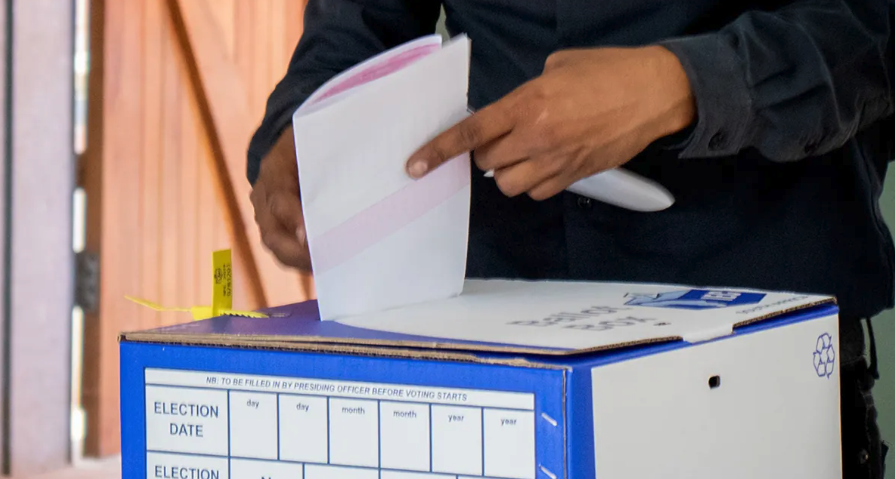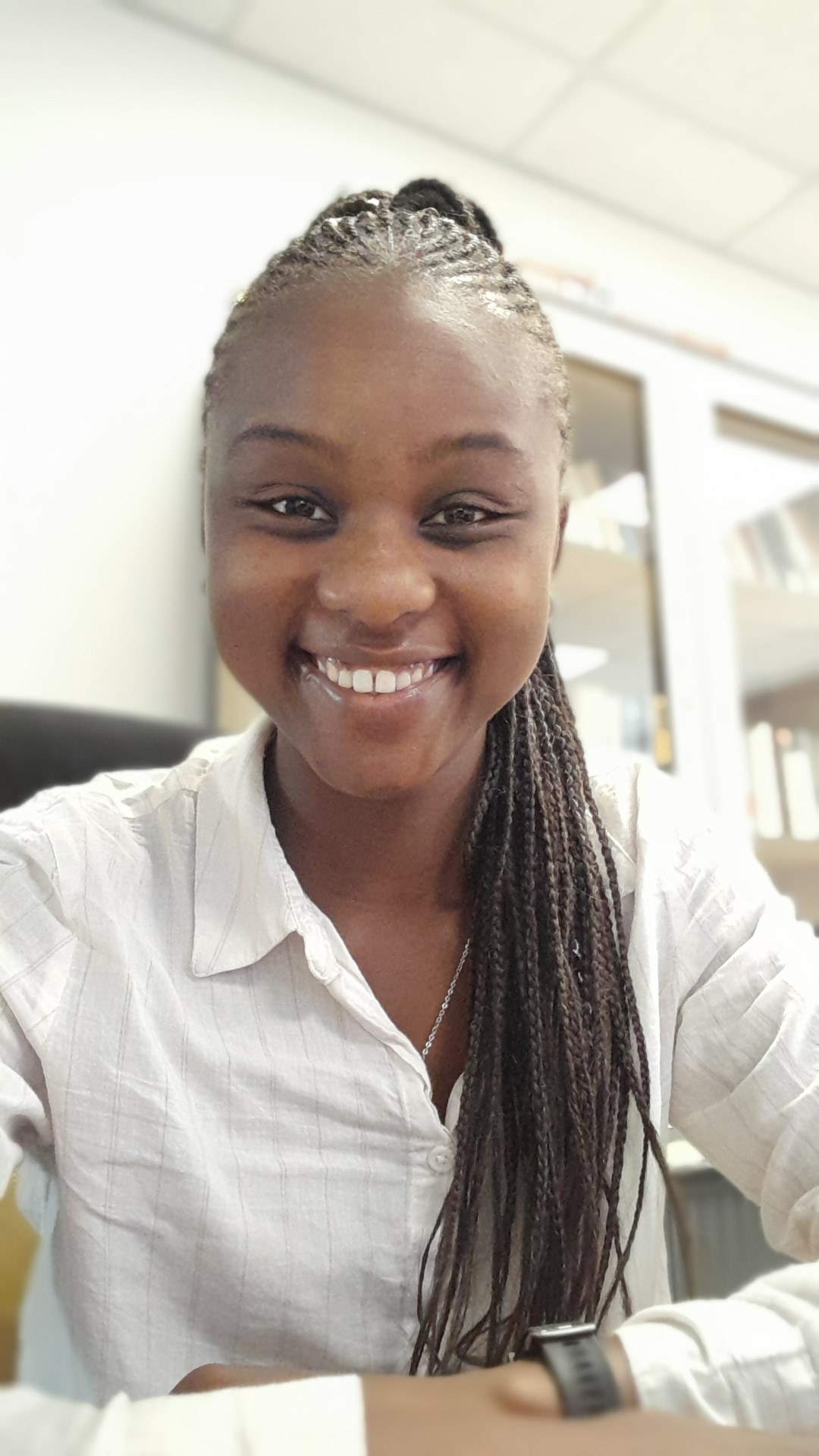News
Will South Africa Learn the Right or the Wrong Lessons from other African Elections?
In 2024, South Africa will hold its seventh democratic election amid heightened corruption, failing state-owned enterprises, self-serving elites and a declining economy.

Transparency and accountability have been hallmarks of South Africa’s elections until now. Is there a danger that we could join the growing number of countries where elections are undermined by secrecy that affects the credibility of the result?
Africa has witnessed 23 successful and attempted coups since 2012, while presidents in Mozambique, Uganda and Burundi have manipulated domestic laws to increase term limits. Freedom of speech and the media’s role to hold power to account is also under threat.
South Africa has so far taken a different trajectory and has, at times, been a beacon of transparency. Its Constitution protects democratic rights, and when the country has gone astray, institutions have brought this to light. The Zondo Commission report exposing the full extent of State Capture comes to mind.
Transparency refers to behaviour and processes that are clear for others to see and understand what is going on. This means ensuring the accessibility and visibility of information that people require to make informed decisions.
The Political Party Funding Act (PPFA) came into effect in 2021 and has received mixed reactions. The act requires political parties to disclose private donations quarterly, while donations of more than R100,000 should be disclosed immediately. With the horrors of State Capture still fresh in the minds of South Africans, the PPFA reduces the use of murky political party funding.
Although the PPFA is an example of South Africa’s commitment to an uncompromised democracy, its regulations have reduced the flow of donations to political parties, and this has limited parties’ abilities to meet operational costs.
While the restrictions imposed by the PPFA and the allocations of the Represented Political Parties Fund are currently being debated, the act remains a crucial bulwark for maintaining the integrity of elections by imposing greater accountability and transparency by political parties.
Shambolic democracies
Without such measures, the country risks joining the list of shambolic democracies on the continent.
Our northern neighbour, Zimbabwe, starkly demonstrates what can go wrong.
The conflation of state and party resources in Zimbabwe has provided the ruling party with the financial and political resources that give it an unfair advantage. The lack of transparency during elections caused by the blurred distinction between party and state resulted in the outcome of the 2023 elections being declared “unfree and unfair” by international and regional electoral observer missions.
The lack of transparency and accountability in Zimbabwe’s electoral process is a stark reality of why institutions and civil society organisations in South Africa need to remain vigilant and insist on visible and clear processes regarding the country’s democracy before and during the election season.
Civil society groups and citizens’ participation encourages greater transparency and accountability.
Electoral Amendment Bill
South Africa’s amendment of its electoral laws is also an important step to ensuring a strong democracy.
Following a Constitutional Court judgment, the Electoral Amendment Bill of 2022 (EAB) – which was signed by President Cyril Ramaphosa – allowed for the inclusion and nomination of independent candidates to the National Assembly and the provincial legislatures. This strengthens voter choices by allowing individuals to contest alongside political parties.
According to a report by the International Institute for Democracy and Electoral Assistance, the broadening of political participation creates stronger and more resilient democracies by increasing the range of voices that contribute to decision-making processes and that can challenge abuses of power and procedure.
However, there are holes in the EAB.
For independent candidates to appear on the ballot paper, they must amass more than 8,000 voter signatures. On the other hand, candidates affiliated with political parties only need 1,000 signatures – a number that undermines the desire for Parliament to be more accountable to its voters and for candidates to be closer to their constituencies.
So, while the EAB is a step in the right direction, the finer details create significant barriers to entry that limit the potential for a broader and more diverse body of candidates.
Liberia lights a path
Elsewhere in Africa, civil society is showing the way.
In Liberia, set to hold elections in October, the Electoral Institute for Sustainable Democracy in Africa (Esia) emphasised the importance of the citizenry during elections.
Esia commended the strong ownership that Liberian citizens have of their elections. This strong sense of ownership comes after two brutal civil wars that created the belief in Liberians that a worthwhile democracy should be protected at all costs.
Despite technical and operational challenges, citizens in Liberia participate in the electoral process by ensuring that their communities are informed about issues such as voter registration.
In some cases, citizens who are engaged in the electoral process as temporary staff of the National Electoral Commission go as far as using their resources to collect the material needed for printing voters’ cards.
The crucial issue is that elections are the main pathway for choosing politicians who will make decisions and enact policies that will positively or negatively affect a nation.
By fighting for transparent processes through accountability, South Africa will be protecting its hard-won freedom, peace and political stability. This freedom is only an illusion if the process through which leaders are chosen is not fair or transparent.
As a result, the citizenry loses the trust and sense of security in one of the pathways through which the country’s freedoms and successes can be made possible.

While South Africa’s electoral process is fairly transparent, the issue of State Capture under Jacob Zuma, with upheavals and the weakening of the prosecutorial authorities, tells us that without vigilance, crucial processes such as elections will be undermined to protect the privilege and power of the elite.
This is another lesson South Africa can learn from the rise in coups and conflicts around election time in many African countries.
Five protections
So, with this bleak outline, here are five ways that South Africa can protect elections and in turn protect democracy and freedom.
First, citizens must jealously guard the openness and transparency with which elections are conducted in polling stations and, critically, during counting. The process of transmitting results “live” as they come in from polling stations is critical to preventing abuses in counting that trouble many African elections.
Second, citizens should become more educated about how the electoral process functions to pick up any wrongdoing in their communities and at polling stations.
Third, to avoid the politicisation of the electoral process, citizens should get involved in the management of elections by applying to become polling officers and registration officers to avoid party bias and interference at the polls.
Fourth, lawyers, activists and civil society organisations should take advantage of the courts and raise petitions that challenge laws, policies and practices that are unclear and potentially violate the Constitution.
Finally, entrepreneurs and the academic community should create platforms that make it easy for people to get to know their candidates and the party manifestos, as well as provide much-needed updates on deadlines for registration and being able to locate citizens’ relevant polling stations.
The key word to remember here is: “TRUST”.
When institutions are trusted, they can better serve the needs and interests of the public. To ensure this trust, the protection and practice of transparent processes and accountability measures must be protected at all costs.
South Africa is poised for success, if only by learning from its mistakes and the mistakes of others.
This article originally appeared on the Daily Maverick
Photo: Aisha Abdool Karim


